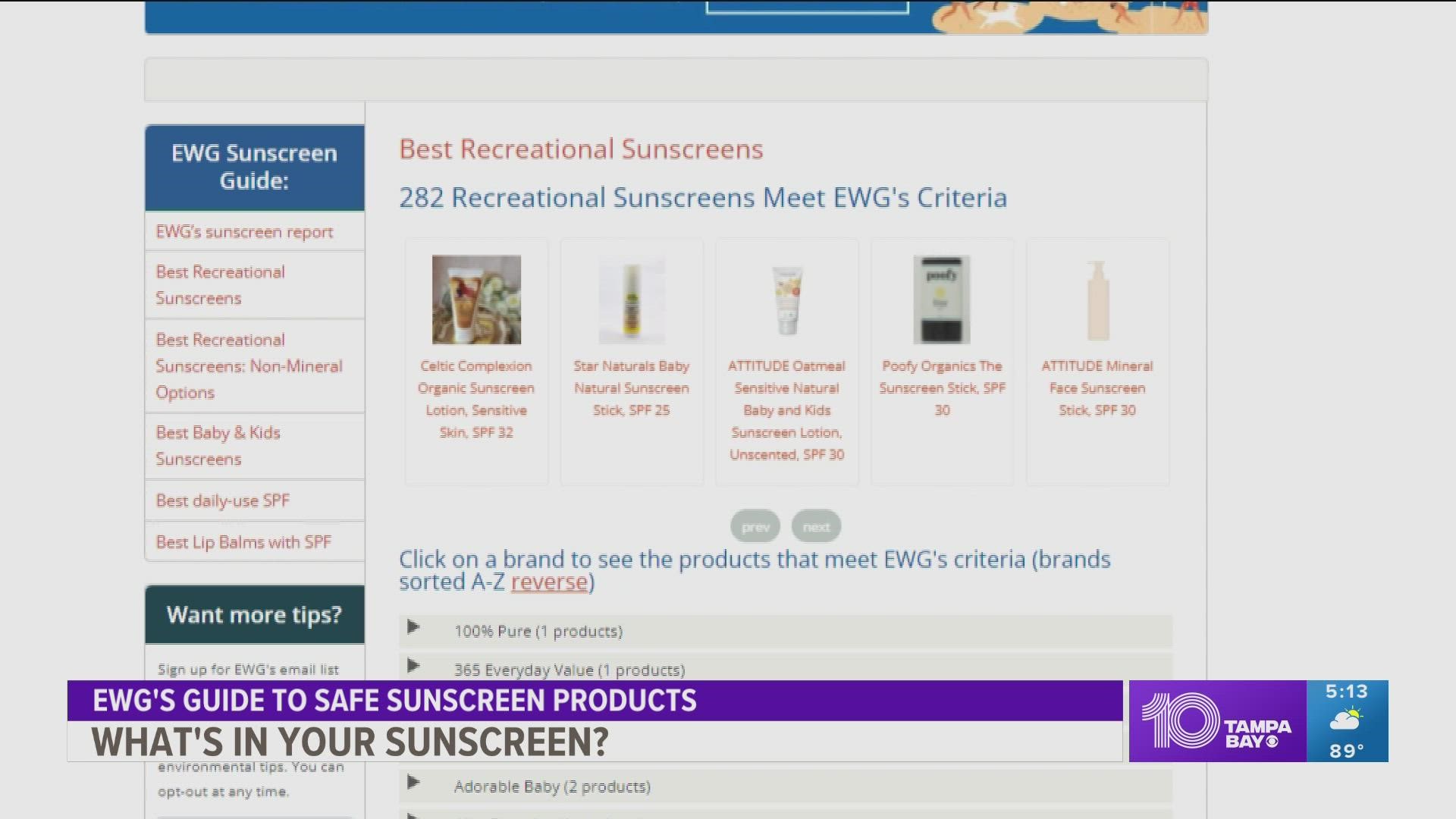FLORIDA, USA — Florida ranks second in the country for new cases of skin cancer. We rely on sunscreen to protect us from harmful UV rays, but the nonprofit Environmental Working Group or EWG says not all sunscreen products are doing that.
The group analyzed more than 1,850 products and say that about 75% don’t do enough to protect our skin from harmful UV rays or had ingredients that could be harmful to your health.
Carla Burns is the Senior Director for Cosmetic Science. She said to look for more than just the SPF value when you pick up a product. The SPF value protects you from burning or redness, but no other health issues like skin aging or skin cancer.
"What are the ingredients being used?" she said. "Are they providing you adequate sun protection? Are they linked to any really concerning human health impacts or environmental health impacts?"
To put an SPF value on a product, there is FDA oversight and regulation, however, Burns said there is not enough review of the actual ingredients in the products.
“We slather these ingredients on our skin, but many of these chemicals haven't been adequately tested," said Burns. "EWG has been advocating for the Food and Drug Administration to review these ingredients for 16 years.”
According to EWG’s analysis, spray sunscreens typically have the most issues because they often have benzenes or other chemicals.
There are other options including the 282 recreational sunscreens that did meet EWG’s high standards.
Burns also encouraged people to use broad-spectrum products with "zinc oxide" or "titanium dioxide."
You can navigate EWG’s Guide to Sunscreens to find the best products or see how your current sunscreen ranks.
EWG provided 10 Tampa Bay with more tips on how to choose better sunscreens and stay safe in the sun:
- Avoid products with oxybenzone, which is absorbed through the skin in large amounts and can affect hormone levels.
- Stay away from vitamin A in sunscreens. Government studies link the use of retinyl palmitate, a form of vitamin A, to the formation of skin tumors and lesions when it’s applied to sun-exposed skin.
- Steer clear of sunscreens with SPF values above 50+, which may not give increased UVA protection and can fool people into thinking they’re safe from sun damage.
- Avoid sprays. These popular products make it difficult to apply an adequate and even coating on the skin, especially in windy conditions. They also pose inhalation concerns.
- Avoid intense sun exposure during peak hours for sun exposure, between 10 a.m. and 4 p.m.
- Check products against EWG’s Guide to Sunscreens and avoid those with harmful additives.

